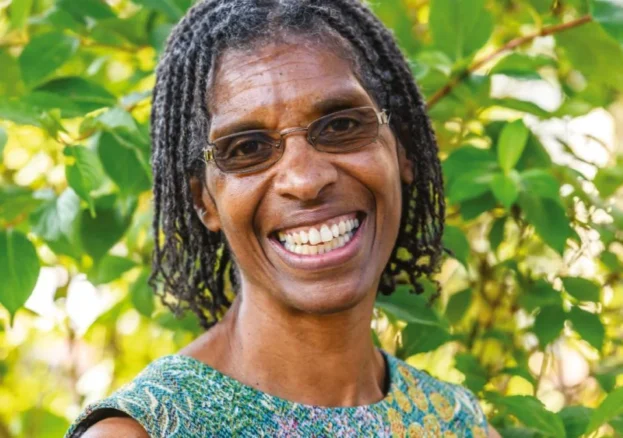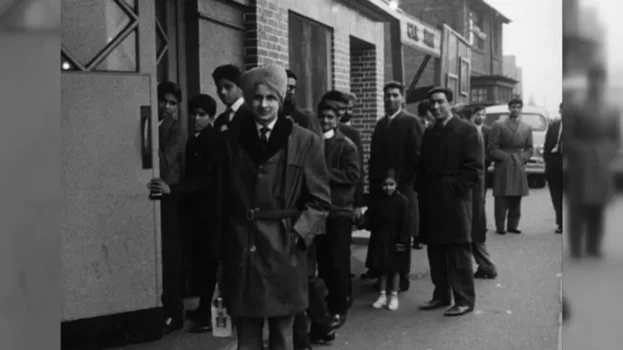
Not only is one end of the street the home of Sunrise Bakery, one of the UK’s first Caribbean bakeries and an enduring example of Black enterprise, but also, the street witnessed several egregious examples of the overt colour bar that blighted Black lives in the UK during the early Windrush years.
Right up to the UK’s first Race Relations Act of 1965 and beyond, it was usual for black entertainers, even chart-toppers, to have to enter and leave venues through the back door – if they were hired at all. To enter through the front, they had to have White allies to open the door (such as Frank Sinatra did famously for Sammy Davis Jnr earlier in the US). Little did I know, until very recently, that this experience directly linked my father and Millie Small, Jamaica and the Caribbean’s first female international recording star, who sadly died aged 72 in 2020.
At the pinnacle of her popularity, Millie was booked by the Smethwick Working Men’s Club, situated just a stone’s throw away from our home on Woodlands Street. Millie, born Millicent Dolly May Small in 1947, had become an international sensation with her chart-topping record, ‘My Boy Lollipop’. She was about to embark on a world tour in 1965 when she graced Woodlands Street as part of her itinerary. She had already appeared in the popular TV show, ‘Ready, Steady Go’, and was set to tour Japan, Australia, the US, and several other countries.
My father had arrived in Smethwick from Jamaica in 1956 as one of the so-called Windrush Generation. We moved to our first UK family home on Woodlands Street in 1965. As a new arrival with limited opportunities to progress professionally, my father became a factory worker. He completed long shifts stoking furnaces that were part of the backbone of the well-known iron and steel industry in the Black Country with its historic links to Transatlantic Slavery. Latterly, I have come to realise the dangers and risks to which he was exposed while toiling to earn the meagre wages to sustain our family. For example, I recall him playing down, almost seeking to normalise, how he had to be rushed to hospital after getting cyanide, a rapidly-acting and potentially deadly chemical, in his eye.

Like many Black working men at the time, my father relaxed after a long factory shift by socialising with friends in the betting shops, going to the pub, and playing dominoes. It was in this context that he retold vividly the story of his abortive attempt to join the local Working Man’s Club on our street.
On visiting the club for the first time, he was told unceremoniously that Blacks were not allowed in. Now, over fifty years later, I have learned that Millie Small also suffered this fate there in the 1960s on arriving to fulfil her booking as its star performer.
I recently joined a Facebook page for Smethwick reminiscences and posted about belonging to the only black family on Woodland Street, and the racism we had experienced. Another member responded with her recollection of Millie Small coming to the Working Men’s Club and being denied entry, just like my father. She recalls her disgust at the racist ploys used to bar Blacks.
‘They used to say, “It’s too late to sign in”. That was their racist way of excluding people.’
She remembered how she had returned from the Ladies to see Millie Small being prevented from entering the club. After she insisted on telling the doorman that the person was Millie Small and she was the star for the night, he relented and let Millie in. At the interval in the show, she was invited to speak with Miss Small in the changing rooms, courtesy of her father-in-law – who was on the club’s Committee. She recollected how lovely Miss Small was and how the latter could not thank her enough for intervening to stop her exclusion. The club later became open to black people, but my informant could not remember when, except to say, ‘some fabulous Black singers and groups, including The Platters’, were among the well-known performers.
Smethwick was notorious for its racism and was perceived as a hotbed for racial strife throughout the 1960’s and 70’s. The Conservative MP, Peter Griffiths, exploited the pervading hostilities against new arrivals from the Commonwealth and scurrilously won the seat in 1964 with the slogan, ‘If you want a nigger for a neighbour, vote Liberal or Labour’. It was also suggested that Malcolm X chose Smethwick for his visit to the UK to garner support for the Pan-African American Movement precisely because of the town’s reputation for hostility to Black people. The rear entrance to my secondary school was on Marshall Street, the actual site he earmarked for his political speech on 12 February 1965, just 9 days before being assassinated.
Thus, the early years of my family’s life in Smethwick as part of the Windrush Generation are entrenched in the history of the racial strife of Smethwick.
‘My boy lollipop’ became an international hit single, and Millie Small climbed the pop charts to number 1 in the Republic of Ireland and number 2 in the UK and USA. Yet, the racism both she and my father experienced, in the same place, in the same street in Smethwick, showed that racism did not discriminate according to status: the colour of one’s skin was the defining and unifying factor that singled one out for racial abuse in the eyes of British Society. Over seventy years on from the first Windrush arrivals and nearly sixty from Millie Small’s apogee, the question is, how far has Smethwick and the country come in ridding itself of racism?
Dr Melrose Stewart MBE with thanks to Professor Clive D. Fraser for his contributions.
Reference
England in 1966: Racism and ignorance in the Midlands
